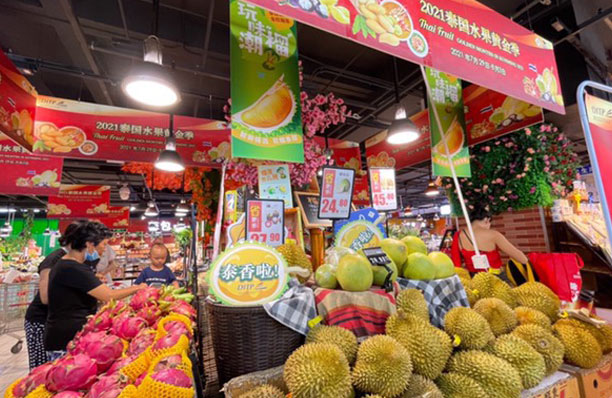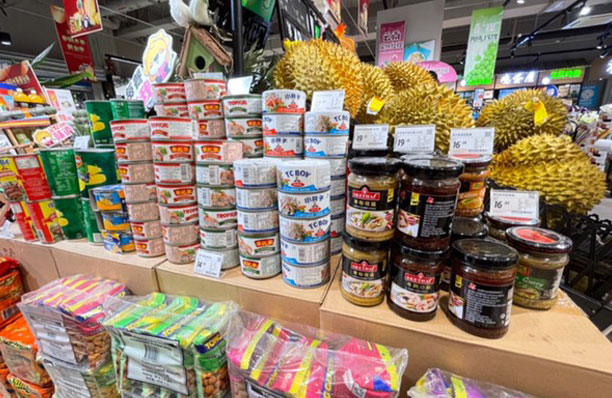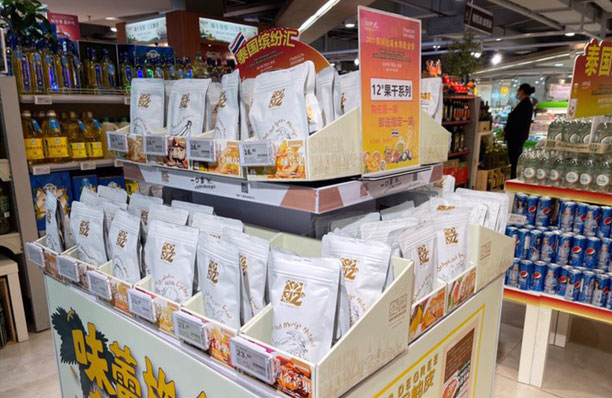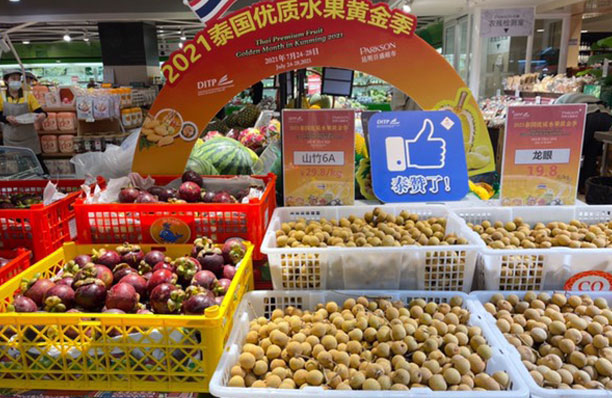
China E-Commerce Offers Great Opportunities for Thai Exporters

Chinese government attaches great importance to online businesses.
Its strict laws makes China’s e-commerce system very efficient.
The key to success is to understand potential customer’s preferences.
“Chinese entrepreneurs are used to adjusting their business, plus, the Chinese government has strict measures to support and restore the economy in every province,” Natchathorn Manopanjasiri, Director of Thai Trade Centre in Kunming, says of the country’s post-Covid performance. “As a result, the overall economy of China has clearly recovered quickly.”
China’s economic performance in Q1 2021 far exceeded the GDP growth forecast of 6.5%.
“In Q1 2021, the industrial sector grew by 24%, while the service sector grew by 15%, especially in transportation, logistics and tourism segments,” says Manopanjasiri.
The use of mobile apps and various online systems is common in China, however during the COVID-19 pandemic, there has been an increase in trade through popular online platforms such as Tmall, Taobao, JD.com, Kwaisou and also apps and mini program such as WeChat, HEMA app
According to Manopanjasiri, Chinese companies often use Live Streaming, such as posting a short clip via TikTok, to promote their products. Redbook, a platform for living, dining and travelling, is also popular.
Manopanjasiri adds that China’s central government has strict laws on online commerce, making the country’s e-commerce system very efficient.
“Because the system is reliable and the law is very strict, this means that buyers and sellers can trust each other,” she says.
According to her, the Chinese government attaches great importance to online businesses as it is a good economic stimulus. Not only is there a central government policy to support e-commerce, but at provincial level online activities, such as creating a Live Streaming room, are organised.
The Thai Trade Centre in Kunming has promoted Thai products via the Top Thai Brands event for five years since 2016 to 2019 which has been the largest event in Yunnan Province.
Manopanjasiri suggests those Thai businesses wishing to enter the Chinese market should really understand who their target customers are and their preferences. China has more than 30 provinces, each with different characteristics. For instance, most Yunnan consumers do not like sweet food, preferring sour, salty and spicy, while in northern provinces they prefer sweet food, but not too spicy.
“For spa products, the use of strong herbal scents may not suit Chinese customers very much,” she adds. “The scent that Chinese people like natural material such as rice, flower, tea, etc.”
Another piece of advice is to clarify the herbal properties of a product without focusing too much on the number of herbs, “to help Chinese consumers better understand the products.”
“The Chinese market is big enough for entrepreneurs who understand themselves and their customers,” Manopanjasiri says.
Words by Natthinee Ratanaprasidhi










